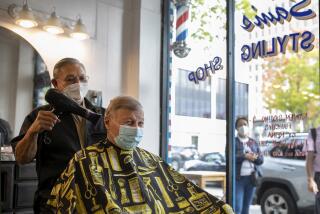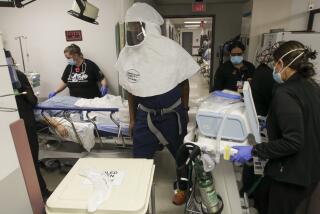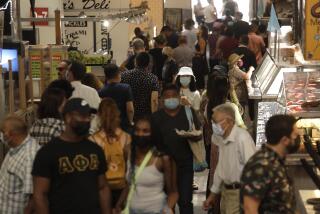Letters to the Editor: I am a nurse who is angry that some patients refuse to trust us on COVID-19
- Share via
To the editor: Nursing students are told to put aside biases and provide equal care. It does not matter if the patient is a drunk driver or the crash victim — guilt is not a priority during the adrenaline-filled chaos of a full-blown trauma. (“Staffing shortages feared at some California hospitals as COVID-19 fills up beds,” Dec. 4)
As a nurse practitioner who has cared for traumatized veterans, I am passionate about women and transgender veterans, both of whom experience incredibly high rates of military sexual trauma. Who perpetrates these atrocities? Likely my male patients — so, I have treated both the perpetrators of violence and their victims.
I never provided substandard care to a patient with a questionable past. In fact, frequently I have been complimented for my ability to be remain nonjudgmental.
COVID-19 has changed this.
People who refuse to believe that COVID-19 is real or refuse to alter their behavior are hurting health professionals and members of their community. I cannot put this fact aside. I ruminate on it. I am angry.
I wrestle with these feelings, and I worry about those entering our profession who must treat patients who choose to hurt them. Nursing is cited as the most trusted profession; that provides little solace as people choose not to believe us at this critical time.
Elizabeth Hanna, Salt Lake City
..
To the editor: For context, I strongly support COVID-19 prevention efforts and would like to see more testing, more and better contact tracing, and better mask compliance.
Your editorial on heeding the new coronavirus guidelines states that the COVID-19 restrictions are grounded in science. However, we have not seen the data from the contact tracing to show where people are being infected most often.
These data are not found on any L.A. County or state website. These data are obviously available from the contact tracing being done. Why is it so hard to get this information that could be used to justify decisions on what to close?
I believe that once most people are faced with the facts, they will understand and support restrictions required to save lives.
We need answers and data from our leaders, and if they are not forthcoming, the media need to ask the hard questions.
Kerry T. Nock, Duarte
More to Read
A cure for the common opinion
Get thought-provoking perspectives with our weekly newsletter.
You may occasionally receive promotional content from the Los Angeles Times.










